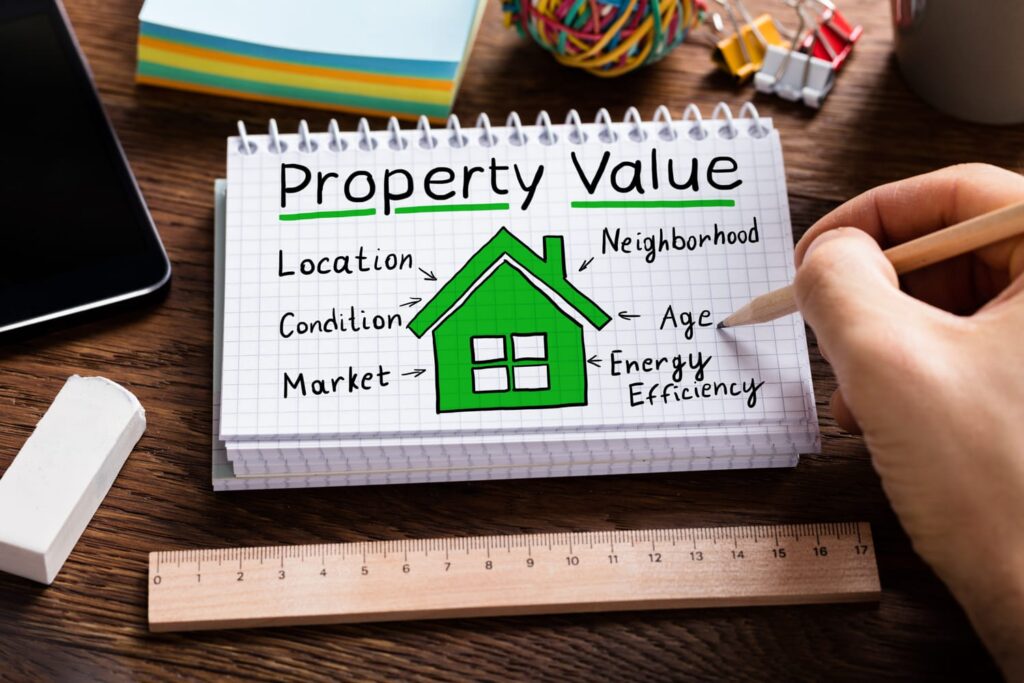Do you dream of acquiring your first house in the Sunshine State? From pristine beaches to vibrant cities, Florida has a diverse landscape making it an ideal place for first-time home buyers.
But let’s be honest; buying a house can be quite intimidating, especially if you are new to the game! But don’t worry! This is an all-inclusive guide that decodes thirteen stages of purchasing a house. Grab a cup of some coffee (or refreshing orange juice from Florida) and let’s embark on this exciting journey towards becoming a Florida homeowner!
Step 1: Assess Your Financial Readiness
Before searching through lists of homes in beautiful Florida, you must assess your financial situation realistically with regards to homeownership issues.
First establish your credit score. In Florida, most lenders go by conventional loans which require at least 620 as the credit score whereas government-backed loans may take lower scores than that. If it needs improvement then work towards enhancing it before applying for a mortgage.
Also consider evaluating savings. A down payment is required together with closing costs and an emergency fund. Closing costs in Florida usually range between 2% and 5% of the purchase price.
Lastly calculate your debt-to-income ratio (DTI). DTI refers to how much money goes into servicing debts each month out of what you earn monthly. Most lenders prefer DTI at or below 43%. If yours is higher, think about reducing some bills before looking for homes.
Step 2: Determine Your Budget
After knowing where you stand financially now it’s time to find out how much house you can afford. An easy rule of thumb says that your gross monthly income should not exceed 28% of your monthly mortgage payment.
Use online mortgage calculators that can estimate possible monthly payments depending on various home prices, interest rates, and loan terms. Do not forget also other costs like property taxes, insurance and perhaps HOA dues which can be quite significant in numerous areas of Florida.
Remember that just because you are eligible for a loan amount does not mean you should stretch your budget. Ensure enough space is left for other life goals and unplanned costs.

Frequently Asked Questions on Buying Your Florida Home
What do I need to buy a house in Florida for the first-time?
A job that pays consistently will be necessary, a credit score that is usually 620 or better, savings account with some funds meant for closing costs and also down payment, which can include proof of income tax returns as well as bank statements. This will involve getting pre-qualified for mortgage and securing homeowner’s insurance.
What is the income limit for first-time home buyers in Florida?
There are different limits on incomes set by various programs depending on where someone lives. For instance, which range from $67,800 (Pinellas County) up to $118,020 (Dade County), such that some families may have more than one member who is eligible under this program but still cannot qualify because their combined annual salary does not exceed either amount set forth above.
How much down payment do you need to buy a house in Florida?
There is no fixed down payment; it differs from one loan type to another. In fact conventional mortgages demand between three percent and twenty percent while FHA loans require only three-point-five percent. VA loans even allow zero down payments for qualified veterans while specific down payment assistance programs exist just target first time homebuyers here in Florida.
What credit score do I need to buy a house in Florida?
The minimum requirement for conventional mortgage lenders is 620. Nevertheless FHA loans can go low up at least 580 or even 500 if a customer contributes more cash towards his/her loan. However interest rates tend to improve once your scores go higher ABOVE THE MINIMUM CREDIT OF 580 .
What is the median income required to buy a house in Florida?
The income needed is highly variable by home price and location. As a rule of thumb, your monthly housing expenditure (including mortgage, taxes and insurance) should not exceed 28% of your gross monthly income.
How much are closing costs in Florida?
Closing costs in Florida usually range from 2% to 5% of the purchase price of the house. On a $300,000 home, you might anticipate spending approximately $6,000 – $15,000 for closing costs.
Is it wise to buy a house in Florida?
It can be smart to invest in a property in Florida with its growing population and vibrant real estate market. However, there are some important factors to keep in mind such as possible natural disasters or hazards like hurricanes and floods; also insurance charges and long-term plans are important considerations too. Always seek advice from local realtors and financial planners who can help you make an informed decision based on your individual circumstances.
Step 3: Get Pre-Approved for a Mortgage
You are now ready to seek pre approval for mortgages based on the planned budget. This stage is important in Florida’s real estate market where sellers prefer buyers who have been approved before they come in to buy the property.
Shop around and compare offers from different lenders. Interest rates, loan terms, and fees should all be considered. In addition, investigate first-time homebuyer programs in Florida as they may offer down payment assistance or favorable loan terms.
When seeking this type of approval, moneylenders will look into your financial details as well as credit history. They then draft a letter stating how much they are willing to lend you once it is submitted by the client. This document will make you a credible buyer before vendors and also enable you concentrate your search for homes within your spending power.
Step 4: Find a Real Estate Agent
Florida’s real estate market can be very confusing to move through, especially for people buying their first homes. That is where a good real estate agent comes in. Look for an agent who specializes in the area you want to live and knows how to work with first-time buyers.
A knowledgeable agent can provide valuable insights about various Florida neighborhoods, help you understand local market trends, and guide you through the entire buying process. They’ll also have access to off-market listings.
Don’t hesitate interviewing multiple agents until you find someone that suits your needs. Bear in mind, this is a person whom you will be spending considerable time with hence choose wisely!
Step 5: Start Your Home Search
Now comes the exciting part – house hunting! With your budget set and your agent by your side, start exploring homes in your desired Florida neighborhoods.
Make two lists of belongings that are required and some that would be nice to have. In Florida hurricane-resistant windows may be considered when purchasing property, as well as flood zones and proximity to the beach or other amenities.
Attend open houses and schedule private showings. Take notes and photos to help recall each property. Don’t feel disheartened if you don’t find it right away – there’s always a perfect home!
Step 6: Make an Offer
Finding a home you like? Now it’s time for an offer! Based on similar sales around the area and condition of the house, real estate agents will help you establish a fair price of offer.
Sometimes in competitive markets like those found in Florida it may necessary act quickly. However, do not let this push take into making an offer on something that doesn’t sit well with you. Include the amount of money willing to pay, any contingencies (such as pleasing home inspection), plus proposed closing date within your offer.
Step 7: Get a Home Inspection
Following acceptance of your proposal, the next step is a home inspection. This is particularly important here in Florida because homes may have unique challenges due to weather.
A professional inspector will look for any problems with the structure, systems and appliances during thorough examination of the property. In addition they check for mold, water damage or pests such as termites which are common in Florida’s humid climate.
Pay close attention to the condition of the roof and HVAC system as these can be sizable costs when buying a house in Florida. If major issues come up during an inspection it could be possible to negotiate repairs or a lower price from the seller.

Step 8: Review and Sign Purchase Agreement
If you are satisfied with your inspection results then it’s time to finalize the purchase agreement. This legal document outlines all the terms of the sale, including for example purchase price, closing date and any contingencies.
It is very important that you carefully review this document with your real estate agent and preferably a real estate attorney. Make sure you understand everything that is written therein before signing off on it.
Step 9: Secure Your Financing
At this point, you should be ready to finalize the mortgage after having signed the purchase agreement. Provide your lender with any additional documentation they need to complete your loan application.
Keep in mind though that the lender might ask for recent pay stubs, bank statements and tax returns from you while also ordering an appraisal on this property so as to ascertain that its value matches with the stipulated amount of money borrowed through mortgage.
During this time, do not engage with huge financial changes for example job transitions or buying expensive items since they have the potential to affect your loan application.
Step 10: Buy Homeowners Insurance
Homeowners insurance is mandatory in Florida and it must be obtained before closing. Look around for affordable prices and best coverage options. In Florida, one should prioritize hurricane and flood cover.
In most cases, flood damage is not included in the standard homeowners policies. You need to buy a separate policy of a flood cover particularly when you are located in an area that is prone to floods.
Step 11: Do a Final Walk-Through
The closing date draws near; make an appointment for a final walk-through on the property. Take this chance to ensure that the home is still in good condition as agreed and that any repairs requested have been done.
Confirm whether all the fixtures and appliances you bought with this house are present and functioning. Moreover, while living in Florida, it would be smart of you to run some tests on how well your air conditioning works!
Step 12: Close on Your New Home
That day has come! On this day, finally sign all necessary documents needed to finalize your purchase then take up the keys to your new home located somewhere in Florida.
Remember to carry your ID card as well as cashier’s check meant for both down payments plus final costs (in case wire transfer was not possible), possibly there may be other files that the lender/title company asked from you.
You will be doing a lot of signing. You should never rush through them but rather seek clarification where necessary until all agreements are clear to you.
Step 13: Move In and Enjoy Your New Florida Home!
Congratulations! So now you own a house in the nice state of Florida. Time has come to move into a new place with all things put according to one’s liking as envisaged by its owners within their residence at one point or another as residents of Florida.
Remember to send your address change notifications, call the utility company and familiarize yourself with the neighborhood. And most importantly, get ready to throw an awesome housewarming party – Florida-style!
Take Your First Step to Florida Home Ownership
Don’t forget that buying your first home is one of life’s biggest milestones and it’s okay if you’re feeling simultaneously excited and apprehensive about it all. Take things slowly – one step at a time – and trust your agent as well as lender for best advice.
Sooner rather than later, you will be basking on the porch of your very own place in sunny Florida! Welcome to home ownership paradise—The Sunshine State!



